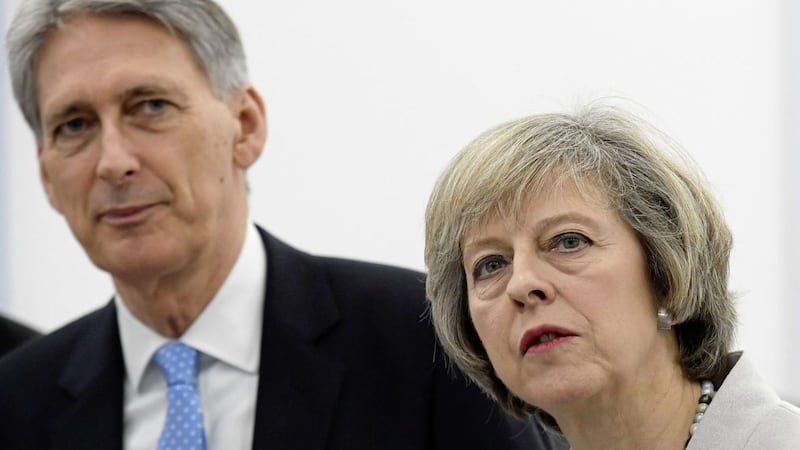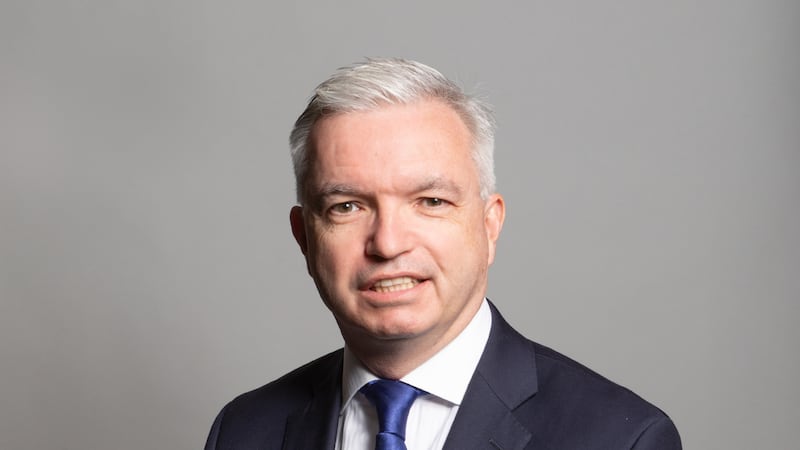BRITISH workers are facing the "dreadful" prospect of more than a decade without real growth in their earnings, a respected economic think-tank has warned.
The Institute for Fiscal Studies said that the UK was in line for "an additional dollop of austerity" in the 2020s after Chancellor Philip Hammond admitted in Wednesday's Autumn Statement that he has given up hope of eliminating the deficit by the end of this Parliament.
IFS director Paul Johnson said projections from the independent Office for Budget Responsibility suggested that real wages will remain below pre-recession 2008 levels until 2021 – the longest period since the Second World War.
And he said: "One cannot stress enough how dreadful that is – more than a decade without real earnings growth. We have certainly not seen a period remotely like it in the past 70 years."
Mr Johnson said the forecasts produced by the OBR on Wednesday – when it predicted a £122 billion increase in borrowing over five years, almost £60 billion of it due to the impact of Brexit – were "noticeably more upbeat" than those of some other experts, including the Bank of England.
But he added: "Even so, the outlook for living standards and for the public finances has deteriorated pretty sharply over the past nine months."
He said the failure to meet former chancellor George Osborne's target of paying down the deficit and reaching surplus by 2019/20 meant austerity would continue into the next decade.
Mr Hammond's promise to balance the books "as soon as possible" in the next parliament – expected to run from 2020-25 – was "rather woolly", said the IFS boss.
But he added: "Given uncertain times, a degree of woolliness is probably sensible. It wouldn't take a huge downgrade in trend growth forecasts of GDP in 2020 for us to miss the target.
"And getting to balance in the next parliament will still require an additional dollop of austerity on top of the full decade's worth we will have had by then."
Mr Hammond denied borrowing was "out of control" as he acknowledged that his Autumn Statement had been designed to prepare for the possibility of economic slowdown next year.
In its twice-yearly Economic and Fiscal Outlook report on Wednesday, the OBR downgraded growth for each of the next two years, warning that the vote to leave the EU would wipe 2.4 percentage points off growth over the next five years.
Speaking during a visit to Gloucestershire with Prime Minister Theresa May, Mr Hammond told Sky News: "To me it makes sense, given the warning signals from the OBR report, to keep a little bit of firepower in the locker, to build a little bit of a reserve so that, if there is a slowdown next year, we've got enough capacity to support the economy, to protect jobs, to ensure that the economy can get through any headwinds it encounters."
Asked about spiralling debt levels, Mr Hammond told the BBC Radio 4 Today programme: "It's not out of control, it's larger than we would like it to be.
"We should have a plan which both invests in our economy... but also puts a little aside for the possibility of a slightly more rainy day next and the year after, as the OBR forecasts suggest.
"The OBR itself would say that there is a wide range of uncertainty around its central forecast. It isn't only the uncertainty around Brexit negotiations. There are many factors which are causing uncertainty in economic forecasting at the moment."
Shadow chancellor John McDonnell called on the government to be open about its Brexit plans, blaming Mrs May's secrecy about her intentions for worsening the economic damage from the referendum result.
"We can't do these negotiations... without openness and transparency. People need to know where is the government going and how is it going to get there," he told BBC One's Breakfast programme.
"At least then you stabilise things and people will be able to settle down into serious negotiations and we will get the best deal. Until the Government gets to that position, we are going to have these uncertainties and this speculation."
However, pro-Brexit Tories said the OBR was being too pessimistic.
Former Cabinet minister Iain Duncan Smith said the forecasts were "another utter doom and gloom scenario" by an organisation "that simply hasn't got anything right".
Conservative backbencher Jacob Rees-Mogg said the OBR was "wrong" because it had made "lunatic" assumptions about future trade tariffs.
"Experts, soothsayers, astrologers are all in much the same category," he told BBC Two's Newsnight.
Mr Johnson said the OBR figures suggested national income will be £30 billion lower in 2020/21 than it forecast in March – the equivalent of £1,000 for every household.
And they showed both lower nominal wage growth as a result of lower productivity and higher inflation due to the fall in the value of the pound after the Brexit vote.
"Overall, real average earnings are forecast to rise by less than 5 per cent between now and 2021," he said.
"That means they will be 3.7 per cent lower in 2021 than was projected in March.
"To put it another way, around half of the wage growth projected for the next five years back in March is not now projected to happen. On these projections, real wages will – remarkably – still be below their 2008 levels in 2021."
The chancellor responded to the deterioration in expected living standards by relaxing the fiscal rules inherited from Mr Osborne to allow him to borrow, said Mr Johnson.
But instead of splurging this money on giveaways to make life easier for the "just about managing" families – known in Whitehall as the "Jams" – whom Mrs May has identified as a priority for support, the chancellor allocated the bulk of it to projects designed to boost productivity and economic growth in the long term.
"Given the choice between jam today in the form of more money in people's pockets and jam tomorrow in the form of potential economic returns from greater investment, he went for jam tomorrow," said Mr Johnson.
And he noted that the plan to borrow 2 per cent of national income to invest in "significant" capital spending projects "pretty much exactly" matched the policies on offer from shadow chancellor Ed Balls at the time of the election.
"It wouldn't be far from the truth to say that the new fiscal plans aren't Osborne's, they're Balls'," he said.
Mr Hammond's one measure to ease financial pressures on the Jams – a 2p cut in the taper rate of Universal Credit – was "a small increase in generosity relative to the cuts announced last year", said Mr Johnson.
Measures unveiled on Wednesday "pale into insignificance" compared with benefit and tax credit cuts announced by Mr Osborne last year.
The UC change, introduced before many claimants have even begun receiving the new benefit, highlighted the "absurdity" of the way in which the flagship welfare reform has been rolled out over many years since its initial announcement in 2010, said Mr Johnson.
"What we have seen has not been a rational process," he said.
"This is not how to design and introduce the biggest reform to our welfare system in decades."
Mr Johnson noted that the chancellor had resisted pressure for more spending on health and social care in the Autumn Statement, but warned: "He won't be able to do that for much longer."
He was critical of the increase from 10 per cent to 12 per cent in insurance premium tax, describing it as a "fiscal infelicity" and insisting that the levy "should be lower".
The seventh successive freeze in fuel duty would cost the exchequer £900 million, said Mr Johnson. And he said the way in which rises are repeatedly pencilled in only to be cancelled or deferred was "turning into a really big problem both for the Treasury and for our approach to the taxation of motoring".
Meanwhile, the chancellor's crackdown on employee perks was "much more meagre than I at least felt we had been led to expect", Mr Johnson said.
Labour leader Jeremy Corbyn said it was time to "get ahead" with the Brexit negotiations to help the economy.
He said: "We have to grow our economy, we have to invest in broadband, we have to invest in better transport infrastructure and we have to be prepared to invest in the manufacturing industry.
"But above all we need to get ahead with the Brexit negotiations. We understand and accept the result of the referendum. We recognise that we're leaving the EU, but we have to get tariff-free market access to the EU, otherwise we've got serious economic problems.
"More than half our trade is with Europe."



